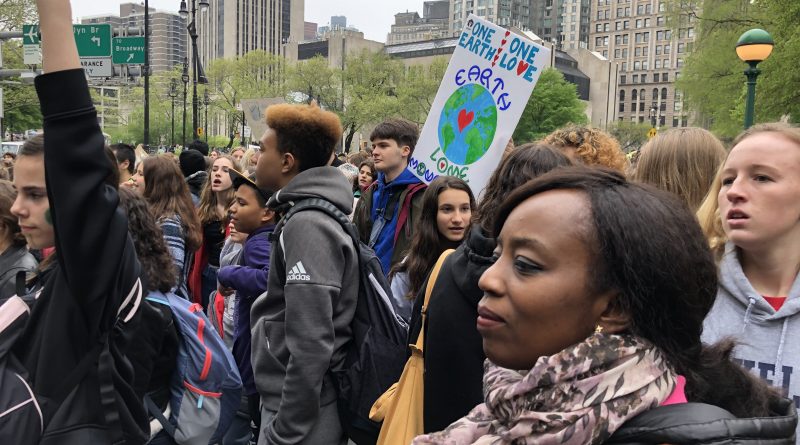Opinion: Love, Justice, and Climate Change. A Battle For Your Mind

Student climate strike in New York City on May 3, 2019. Photo: Russ Vernon-Jones.

I originally posted this piece in February of 2020. I decided to repost it today–partly because I’ve been so busy recently that I haven’t gotten a new post written, and partly because I think it’s still relevant and worth reading or re-reading this week. Recycling is a good thing, right? As always, I welcome your comments.
I used to think that if people of good will had more information about climate change, they would all be moved to take action to stop the climate crisis. I don’t think that any more. Why are some people moved to take action as they learn about climate change and some are not? One key variable is whether you believe you might be able to make a difference, and whether or not you see yourself as significant, or potentially significant. If you believe you can make some difference you are much more likely to take action.
Don’t we all have this problem, to some extent? Don’t we all have days when we feel engaged, connected to others, and glad to be part of the action; and other days when it seems like nothing we do matters and the problems are all too big for us?
Do You Have A Choice?
Many people, perhaps including yourself, feel as though they have very little choice about how the world looks to them and how they feel about it. They take what comes their way. Even when you don’t want to, you may find yourself feeling discouraged, hopeless, or despairing. Your perspective may seem to be buffeted about by the latest news item, a comment by a friend, a minor failure. I invite you to consider that we humans have the power to choose, and fight to hold, a good perspective.
My Experience
Two perspectives sometimes battle for prominence in my mind. One perspective is that nothing I do makes any difference – with regard to climate change or anything else. The other perspective is that successful action on climate can be achieved only by many people each doing their part, and my efforts (although still modest) are meaningful and are having a positive impact. The first perspective makes me feel crummy and saps my energy to do anything constructive. The second one tends to energize me and helps me take initiative and act on my love for the planet and all living things.
I want to hold the second perspective. Sometimes it’s a battle. I want to engage in that battle, rather than being a pawn that’s helpless in the face of my feelings. Your battle may be the same, or it may be somewhat different. In any case, you can choose to fight to hold the perspective that’s most constructive for you.
How Can You Do That?
One effective strategy is to choose where you put your attention. You can decide that you will remember and think about the experiences and facts that support the perspective you want to hold. For me, I think about the people who showed up at the last meeting I led; I remember the appreciative comments people have made about my leadership and writing; I remember that this blog is getting more subscribers every week.
This strategy also requires that you not grind around in, and rehearse, negative information in your mind. When my mind starts to spiral down into despairing about the people who didn’t come to the meeting, reviewing all the criticisms and indifference I’ve ever experienced from other people, and dwelling on the fact that other blogs have more readers than mine, then I need to consciously stop and turn my mind toward other things – the people I’m with or that I know care about me, the tasks that will move me toward my goals, or thinking of something I can feel pleased about.
(Please note, I do think there are good reasons sometimes to think about the people who are not coming to meetings, to seriously consider what, if anything, we can learn from the criticisms we’ve received, and what we have not yet achieved that we want to aim for. Thinking about these things can be useful, but grinding around in them while feeling bad about ourselves, is a waste of time. Actually it is worse than a waste of time, it serves the purposes of the forces of oppression that want to maintain the inequitable and dangerous status quo.)
These Next Two Weeks
I invite you to try out these ideas. Think about what positive perspective(s) you want to have in your mind. I’m not proposing that everyone should try for a perspective that turns them into a driven activist. I know you care about climate and would like to be making a difference – whether it’s small or large. What perspective could help you do that happily and steadily? Where would it help you to put your attention?
Ask other people what their perspectives are about their ability to make a difference. Listen to them, and then consider sharing some of these ideas with them to get their reaction. You don’t need to persuade anyone – just get them thinking.
Russ Vernon-Jones was principal of Fort River School 1990-2008 and is currently a member of the Steering Committee of Climate Action Now-Western Massachusetts. He blogs regularly on climate justice at www.russvernonjones.org.
